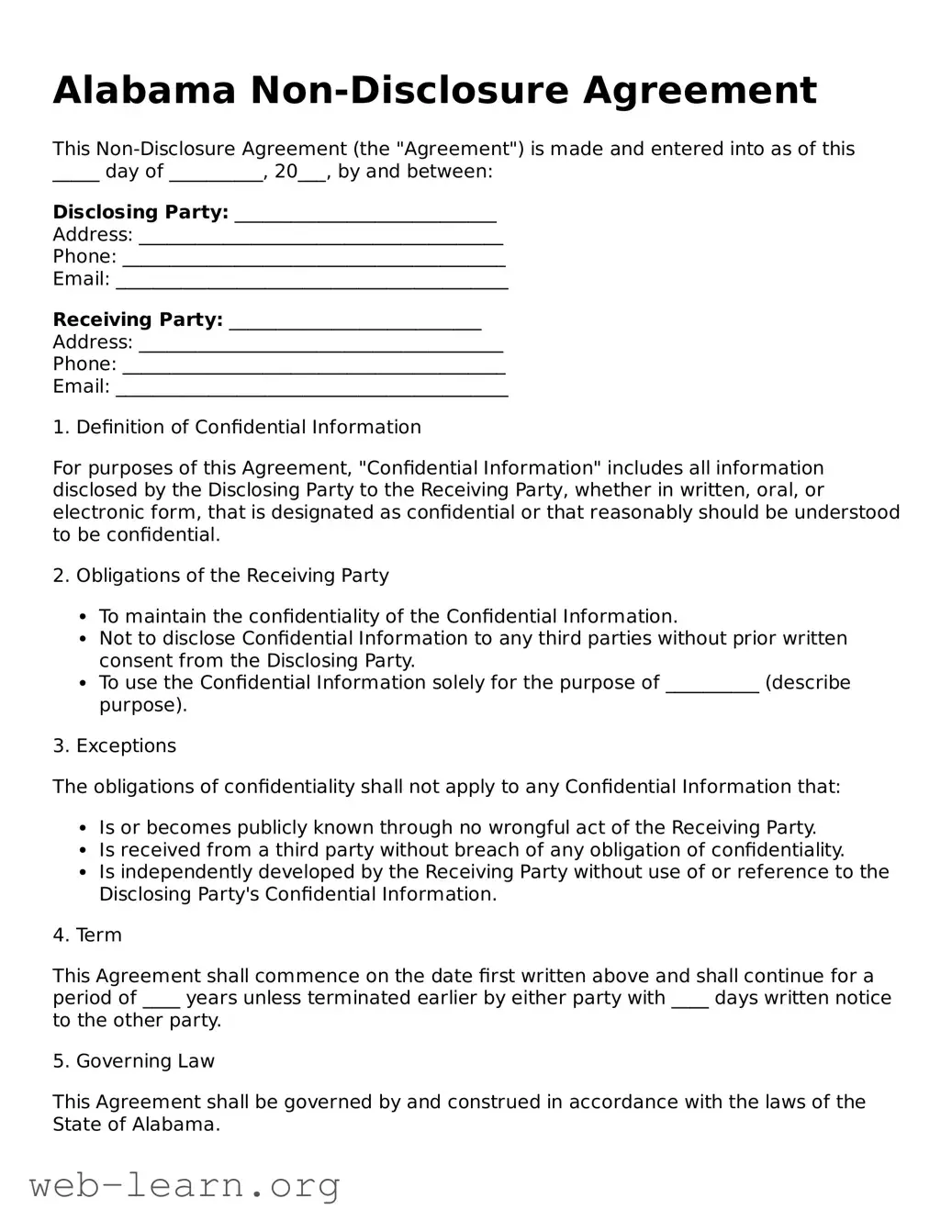Alabama Non-Disclosure Agreement
This Non-Disclosure Agreement (the "Agreement") is made and entered into as of this _____ day of __________, 20___, by and between:
Disclosing Party: ____________________________
Address: _______________________________________
Phone: _________________________________________
Email: __________________________________________
Receiving Party: ___________________________
Address: _______________________________________
Phone: _________________________________________
Email: __________________________________________
1. Definition of Confidential Information
For purposes of this Agreement, "Confidential Information" includes all information disclosed by the Disclosing Party to the Receiving Party, whether in written, oral, or electronic form, that is designated as confidential or that reasonably should be understood to be confidential.
2. Obligations of the Receiving Party
- To maintain the confidentiality of the Confidential Information.
- Not to disclose Confidential Information to any third parties without prior written consent from the Disclosing Party.
- To use the Confidential Information solely for the purpose of __________ (describe purpose).
3. Exceptions
The obligations of confidentiality shall not apply to any Confidential Information that:
- Is or becomes publicly known through no wrongful act of the Receiving Party.
- Is received from a third party without breach of any obligation of confidentiality.
- Is independently developed by the Receiving Party without use of or reference to the Disclosing Party's Confidential Information.
4. Term
This Agreement shall commence on the date first written above and shall continue for a period of ____ years unless terminated earlier by either party with ____ days written notice to the other party.
5. Governing Law
This Agreement shall be governed by and construed in accordance with the laws of the State of Alabama.
IN WITNESS WHEREOF, the parties have executed this Non-Disclosure Agreement as of the date first above written.
______________________________
Disclosing Party Signature
Date: ___________________
______________________________
Receiving Party Signature
Date: ___________________
